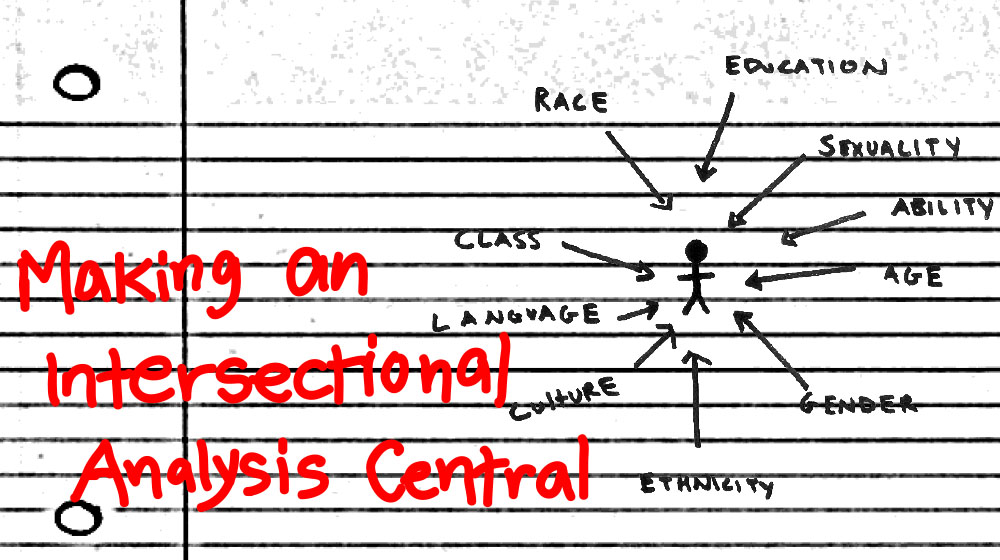
There is no such thing as a single-issue struggle because we do not lead single-issue lives.
–Audre Lorde
We all live at the intersection of multiple identities, privileges and oppressions. As a result, radical politics that rank oppressions or attempt to identify a “primary contradiction” all too often end up addressing one aspect of domination while reinforcing others. We see this in the history of movements and governments that have attempted to focus on class exploitation without challenging patriarchy, or those that have framed struggles solely in terms of race or national identity without addressing class divisions. As activists and organizers we experience hierarchical and patriarchal patterns of behavior emerging in our own organizations when we do not take into account the intersecting identities and oppressions embodied in each of us as we do the work. We may end up feeling isolated or disconnected from movements for liberation, experiencing racism or heterosexism in organizations and groups devoted to social justice.
Since the ways we experience oppression are intersectional, our resistance must be as well. In the same way that we use the term “intersectional” to describe the mutually reinforcing ways in which different systems of oppression interact in our lives, we think about “intersectional struggle” as a way to describe the complexity of understanding, methodology and vision we use to conduct our struggle so that we are profoundly taking on a simultaneous struggle for liberations from all forms of oppression because we see that they are intimately intertwined. Movements and organizations might focus on a particular issue, such as housing rights, or highlight a certain strategic demand, such as classroom size, in a particular moment. But waging an intersectional struggle means keeping the interrelationship of all forms of oppression at the center of our analysis and vision.